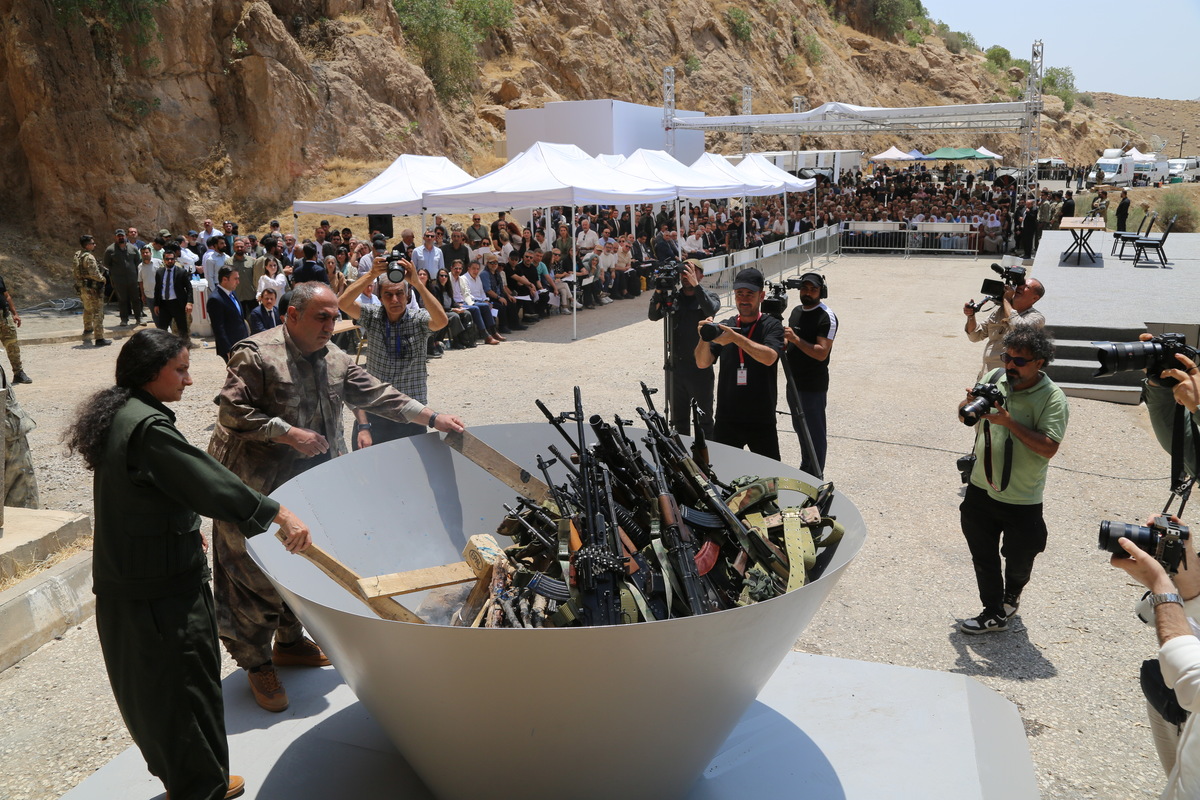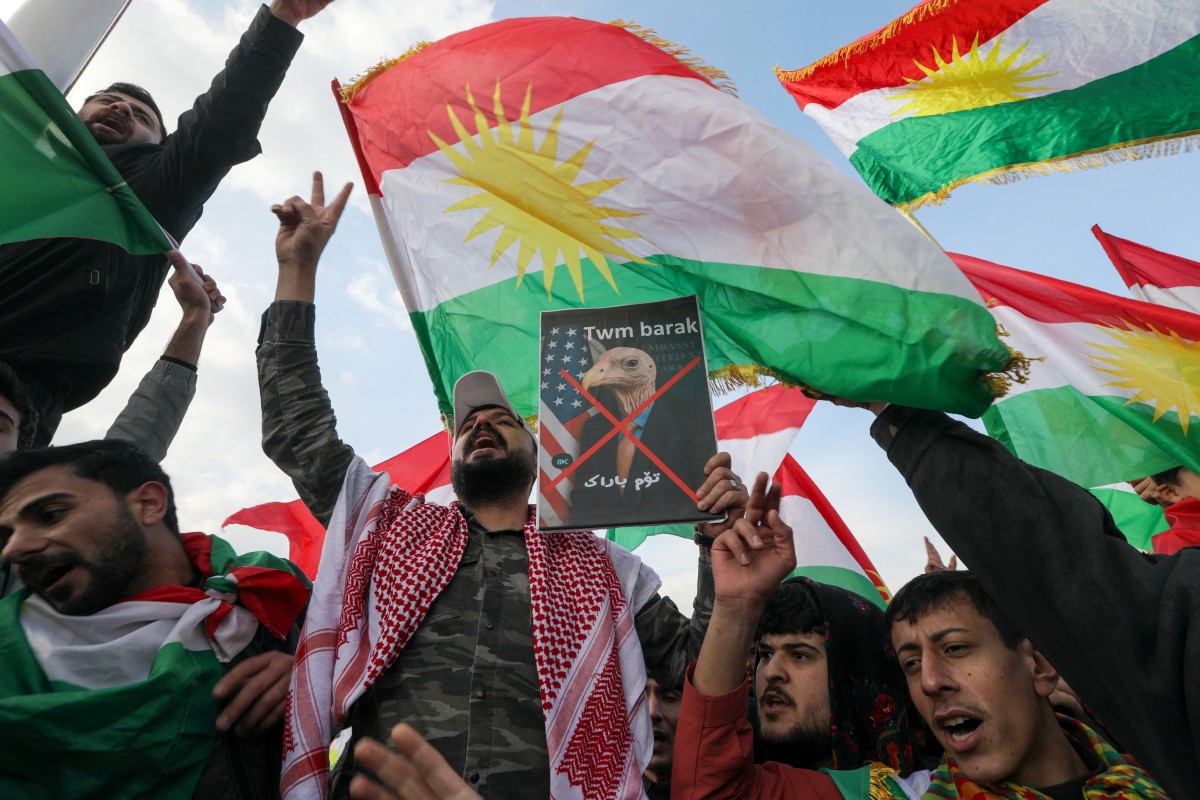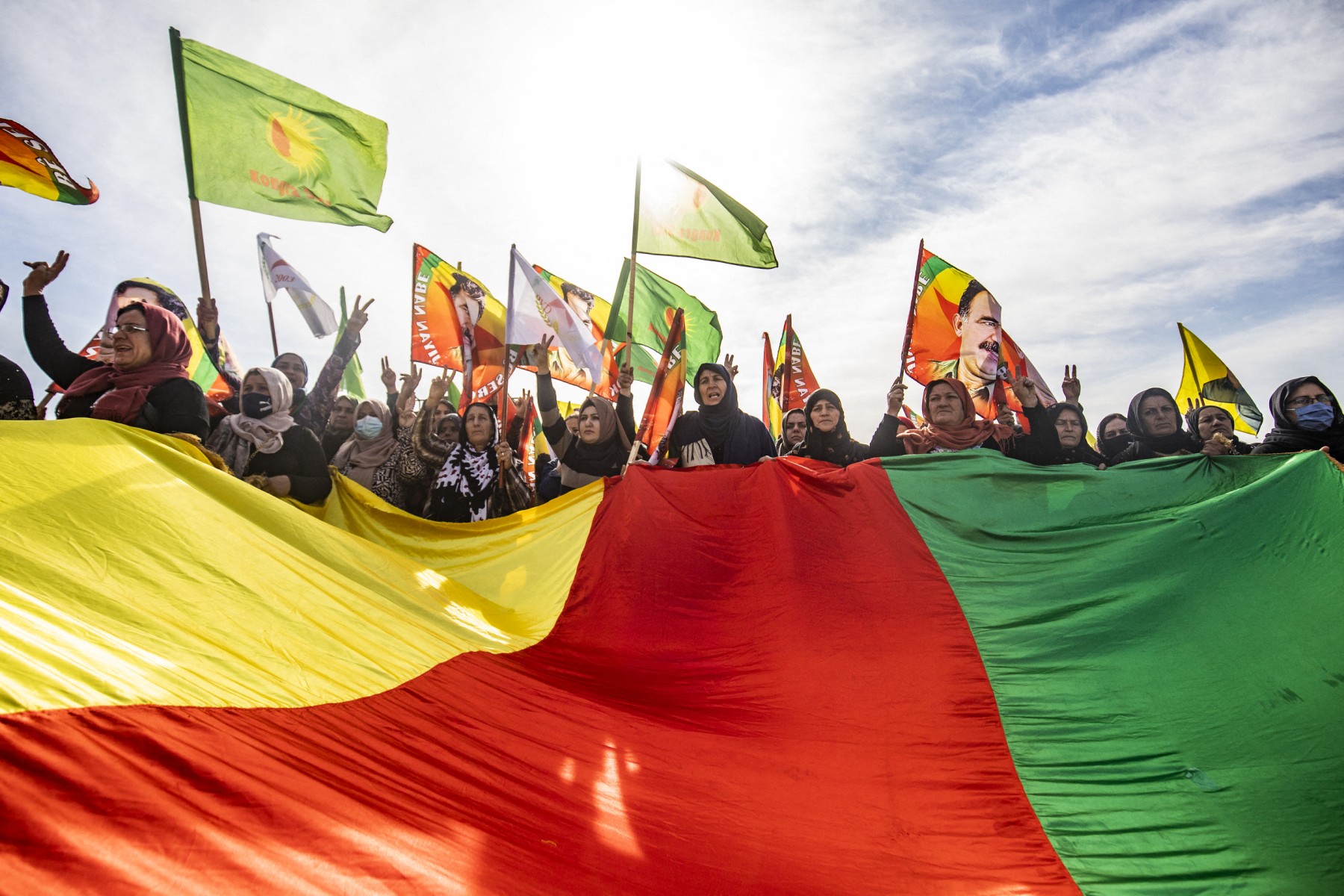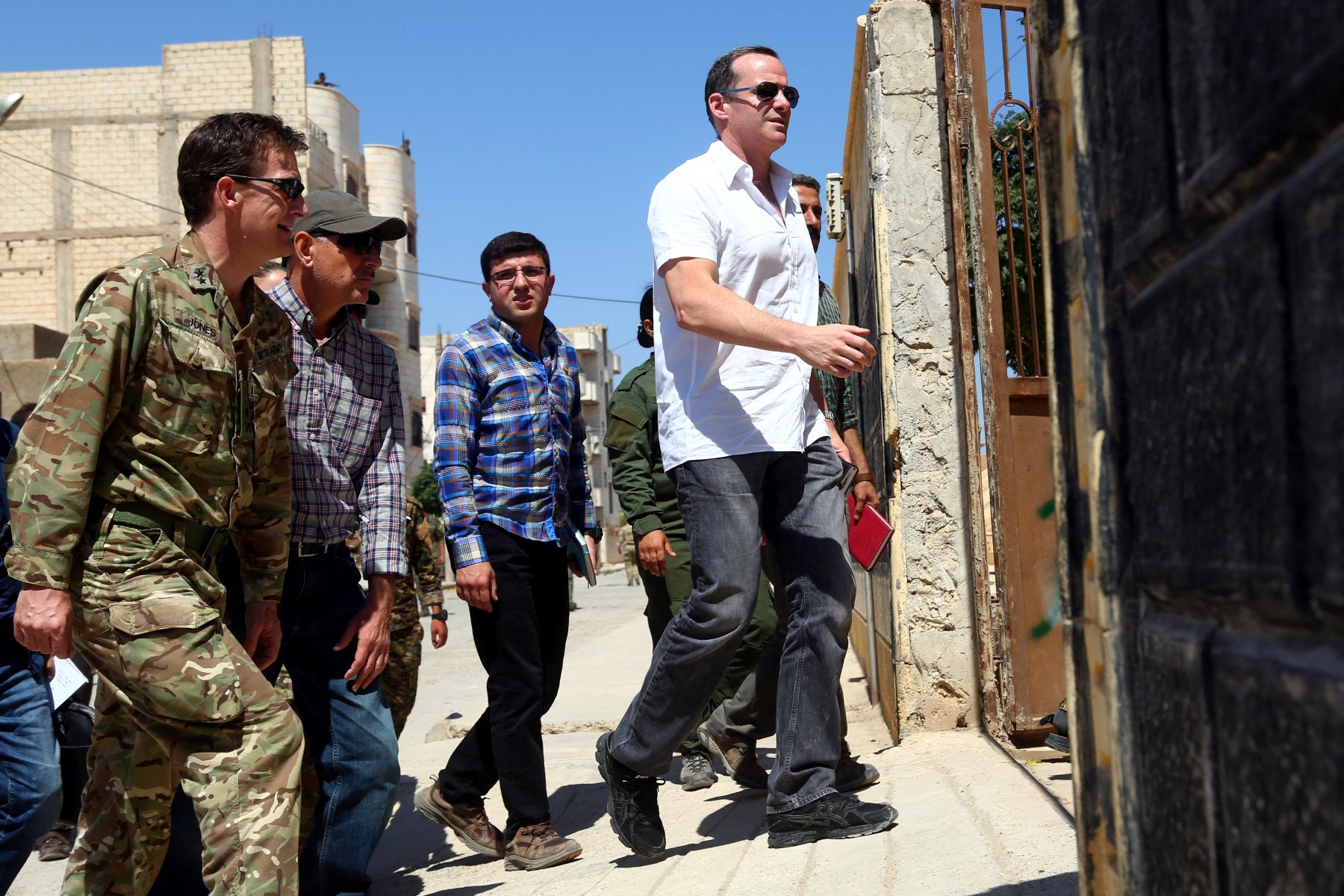Peace on the Banks of the Rubicon

Picture Credits: Erkan Gulbahce
Picture Credits: Erkan Gulbahce
To make sense of the new negotiation process in Turkey, it is important to understand how it differs from the failed 2013–2015 talks and what the concrete demands of the Kurdish public and the state are.
Although Nationalist Movement Party (MHP) leader Devlet Bahçeli’s October 2024 announcement marked a break from the Turkish state’s traditional mindset, so far, it is the Kurds, not Ankara, who have taken tangible steps in favor of a solution.
For French philosopher Alain Badiou, the concept of ‘event’ is the place that breaks the established order of being and represents a new beginning. It is the emergence of something unpredictable, or even deemed impossible, by the existing knowledge, situation, and order. Badiou argues that an event is not a truth; rather, it creates the possibility of a truth. “Fidelity to the events” is the attitude of the individual who recognizes this possibility and works to realize the consequences and potential it brings forth.
In this sense, the process that began in Turkey on 1 October 1 2024 can be considered a genuine ‘event.’ Compared to previously attempted peace processes, this is a rupture in the history of Turkish politics. We suddenly started talking about peace at an unpredictable time, during a period that seemed impossible.
The impact of today’s process reaches a wider institutional sphere and draws its legitimacy from a legislative base.
Let us break down the differences between this new process and previous ones:
To begin with, a difference in scope and legitimacy stands out. The impact of today’s process reaches a wider institutional sphere and draws its legitimacy from a legislative base. The newly-established National Solidarity, Brotherhood, and Democracy Committee, set up in the Turkish Parliament, is actively driving the process forward.
Moreover, the roles of society and politics have shifted. In 2013, civil society enjoyed greater public embrace, while politics often remained cautious and reactive; today, political actors are more proactive, whereas society across Turkey seems to have adopted a more cautious, watchful stance.
Another notable aspect is a shift in the sequencing of steps. While the previous cycle centred on ‘political solution then disarmament,’ today, the focus has been ‘disarmament then solution.’ The Kurdish side stresses that giving up armed struggle as a strategy is a binding change of course, while tangible disarmament is tactical—dependent on security conditions and legal guarantees. If these assurances are provided, the laying down of arms will follow.
Furthermore, the geopolitical ground has fundamentally shifted. The regional conditions of the earlier process are very different from today’s landscape; the Syria and Iraq issues do not always align with Turkey’s domestic timeline.
The Architecture of Peace: Challenges, Demands, and Expectations
Another question is: what are the concrete demands of the Kurdish public and the state? What solution paths do they insist on?
The Kurdish side (Öcalan, political parties, civil society, etc.), which calls this process’ Democratic Society and Peace Process,’ has four main sets of expectations.
First, the issue of Democratic Integration. This means that everyone preserves their identity while enjoying equal access to rights and opportunities. It is not assimilation, but a social contract for common life based on the rule of law, equal participation, and mutual trust. In short, it entails the constitutional guarantee—within Turkey’s unity—of identity, language, and cultural rights alongside the principles of local democracy.
Second, the ‘Democratic Society Law.’ This is a framework that enables civil society, local assemblies, and women’s and youth organizations to take part institutionally in political decision-making, while protecting civic space and defending rights.
Third, the ‘Free Citizen Law.’ This notion articulates a strengthening of equal citizenship, fighting discrimination and safeguarding freedom of expression, association, and fair trial.
Fourth, the ‘Local Government Law’ calls for removing Turkey’s reservations to the European Charter of Local Self-Government, building stronger fiscal and administrative capacity at the local government level, institutionalizing mother-tongue public services and participation, and abolishing the trustee system (kayyım) that removes democratically elected mayors from office, replacing them with government-appointed personnel.
According to the Kurdish side, together, these four pillars form a comprehensive framework for legal recognition.
From the perspective of the state, which refers to this process as the ‘Terror-Free Turkey’ initiative, the security issue comes first. It highlights strengthening public order, disarming Kurdish forces across the region (Iraq, Syria, Iran, and Turkey), and preventing external issues—especially Syria—from shaping the domestic agenda. The Autonomous Administration of North and East Syria, however, argues that disarmament is unrealistic under ongoing threats, demanding a political solution instead.
Numan Kurtulmuş, speaker of the Turkish Parliament and head of the committee, said legislative drafting will begin, though no concrete details are yet known about the contents.
Will the Peace Committee Cross the Rubicon?
The Committee’s findings and proposals—especially from academics, ex-parliamentary speakers, think tanks, and civil society—have been offering notable insights for possible solutions.
Academic presentations in the Committee have called for a ‘500-year geopolitical rupture’ and ‘mental transformation’. They have touched on mother tongue rights, stronger local governments, an inclusive constitution, and mechanisms of reckoning with the past, while also offering key ideas for designing peace. Among them are calls for an inclusive process, a legal roadmap linking short, medium, and long terms, and a phased general amnesty.
Former Speakers of Parliament see the process as a foundational opportunity through the lens of the ‘right to hope,’ equal citizenship, and adherence to high court rulings. In their interventions, they urge the government to take steps that balance justice and peace—such as reforms to sentencing laws, the return of exiles, and ending the trustee system in local governance.
State-centric institutions such as think tanks propose a multi-layered architecture for peace—legal, political, security, institutional, economic, normative, and geopolitical. By contrast, Kurdish-led organizations report that the Kurdish public’s will to remain part of Turkey while preserving its identity has grown stronger, though experiences of discrimination and inequality remain pronounced. They insist that trust can only be consolidated through concrete and lasting steps towards justice.
…lasting peace is impossible without legal, political, and democratic reforms; the status quo is unsustainable, and bold steps are essential.
Despite this diversity of views, the common line is clear: lasting peace is impossible without legal, political, and democratic reforms; the status quo is unsustainable, and bold steps are essential. The question for the Committee is whether or not it will really show the determination to cross the Rubicon.
Geopolitical Horizon
At the end of the first year, both strengths and shortcomings of the current process have become clear. The main strength lies in parliament-centred institutional legitimacy and the creation of a multi-actor forum for debate. What perpetuates weakness is the absence of an implementation timetable and the political will to act. At this stage, it is evident that the tension between the state’s‘ security first’ reflex and society’s expectation of ‘tangible rights’ must be resolved.
Similarly, several geopolitical factors are decisive for the peace process. It is important to separate the issue of Rojava (western Kurdistan) and Syria from Turkey’s domestic calendar. On its part, the Autonomous Administration of North and East Syria has repeatedly expressed its desire for dialogue with Turkey. It has also declared support for the ongoing peace process in Turkey. Moreover, the security–rights balance is the impasse of contemporary politics around the world: security alone cannot institutionalize peace, and a rights discourse alone cannot substitute for security in a conflict-ridden region.
Prospective Scenarios: Hope and Anxiety, Side by Side
One more question remains: how can the process move forward? Is peace really possible?
When it comes to the future of peace and resolution, there are several possible scenarios. The first—and most realistic—scenario is progress through gradual legal transformation. The Parliament is expected to take the initiative on this front, to swiftly create the legal groundwork for the stable continuation of the process. Trust-building steps in this regard would strengthen public support for the developments.
The second scenario signals a possible stalemate: the process could drag on due to technical obstacles and a lack of political will, creating an uncertain situation where neither full disarmament nor legal reforms are achieved.
The worst-case scenario is the collapse of the process, a return to conflict, and the resurgence of violence—with regional power interventions expected to play a major role.
Fidelity to the Event and the Peace Process
In conclusion, in Badiou’s terms, the door opened on 1 October 1 2024 is a ‘possibility of truth.’ Turning this possibility into truth requires three principles: fidelity to peace, legalization, and inclusiveness.
At this stage, we already have sufficient answers to the question of ‘Why peace?’ The urgent task now is to move swiftly on the question of ‘How?’ And for the Kurds, the answer to this question starts with recognition.
A year on, there is a general framework, clear risks, and a workable roadmap. Once Parliament produces concrete texts, the executive shows the capacity to implement them, and society’s threshold of trust is crossed through tangible steps, ‘fidelity to the event’ ceases to be merely an ethical stance.
At this stage, we already have sufficient answers to the question of ‘Why peace?’ The urgent task now is to move swiftly on the question of ‘How?’ And for the Kurds, the answer to this question starts with recognition. The Kurdish side has declared its ‘fidelity to the event.’ As for the state, it is still too early to say.
Özgür Amed
Journalist and writer. Contributes to various newspapers and magazines. Works on memory, humor, politics, and cinema. Author of two books: Böbreği Kim Yedi (2018) and Kürdocul İşler (2011).



